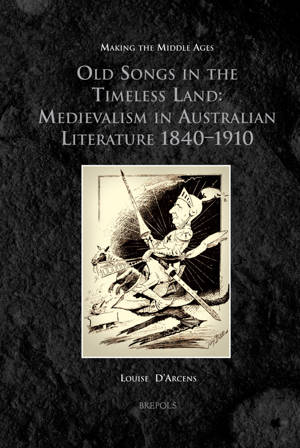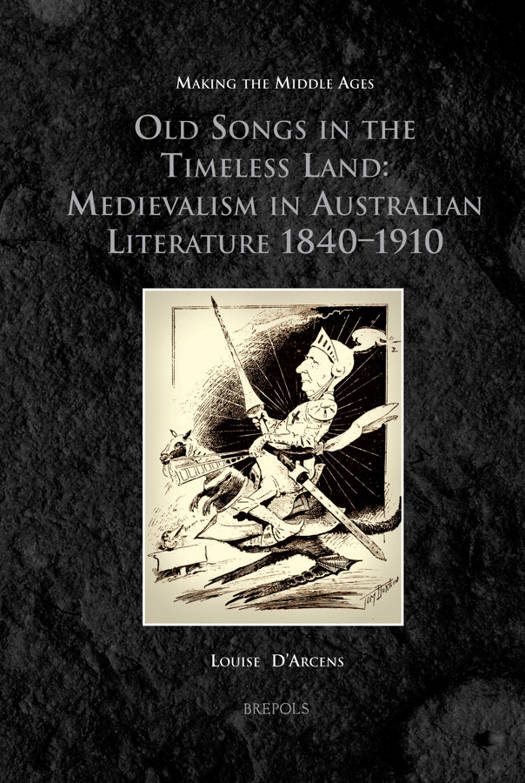
- Retrait gratuit dans votre magasin Club
- 7.000.000 titres dans notre catalogue
- Payer en toute sécurité
- Toujours un magasin près de chez vous
- Retrait gratuit dans votre magasin Club
- 7.000.0000 titres dans notre catalogue
- Payer en toute sécurité
- Toujours un magasin près de chez vous
MMAGES 10 Old Songs in the Timeless Land, d'Arcens
Medievalism in Australian Literature 1840-1910
Louise D'Arcens
Livre relié | Anglais
31,80 €
+ 63 points
Description
This volume is the first close examination of the rich and diverse body of medievalist texts produced in late colonial and early Federal (ie post-1901) Australia. It examines the many ways in which early Australian novelists, poets, and dramatists drew on the motifs, events, and personages of the medieval past, and places particular emphasis on how they used the European past to illuminate their sense of the Australian present. Broadly stated, the book argues that a study of early Australian medievalist literature and theatre uncovers a rich and revealing drama in which the forces of cultural nostalgia and cultural amnesia sometimes contended against one another, and sometimes harmonised, to produce a unique and distinctive corpus. The book significantly extends current knowledge about nineteenth-century literary and theatrical medievalism by offering an exploration of how medievalist discourses and idioms came to be taken up within a major, but as yet under-examined, branch of Anglophone literature. It aims also to broaden the cultural ambit of nineteenth-century medievalism by offering analyses of popular and ephemeral instances alongside more 'serious' medievalist texts. The study balances an interest in how this medievalism responded to local conditions with an interest in its international complexion, examining how Australian medievalist novels, poems, and plays, participated in imperial and transpacific intellectual and entertainment circuits. While the emphasis of the volume is on close, historically-contextualising interpretations of texts, it has woven through its arguments a series of meditations on such theoretical matters as how we determine the boundaries of medievalism, how we might develop an account of colonial medievalism as non-derivative, whether medievalist discourses are equally amenable across gender, class, and ideological lines, and how the premodern past is evoked as a means for formulating the present and the future. Louise D'Arcens is an Associate Professor in the English Literatures Program. Her two main current research areas are medievalism and medieval women's writing.
Spécifications
Parties prenantes
- Auteur(s) :
- Editeur:
Contenu
- Nombre de pages :
- 232
- Langue:
- Anglais
Caractéristiques
- EAN:
- 9782503535661
- Date de parution :
- 21-11-11
- Format:
- Livre relié
- Format numérique:
- Genaaid
- Dimensions :
- 163 mm x 241 mm
- Poids :
- 544 g

Les avis
Nous publions uniquement les avis qui respectent les conditions requises. Consultez nos conditions pour les avis.






